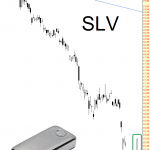The price of BNB token has experienced a 24.5% decline over the past 90 days, despite a 7% gain between July 10 and July 11. BNB has performed worse than the overall altcoin market, indicating that the underlying cause for the bearish momentum persists.
It is highly likely that the correction in BNB’s price can be attributed to the lawsuit filed by the U.S. Securities and Exchange Commission (SEC) against Binance exchange and its CEO Changpeng “CZ” Zhao on June 5, as the decoupling coincides with that event.

Is the recent BNB price rally sustainable?
This analysis should highlight whether the surge above $245 on July 11 is supported by an improvement in sentiment or a balanced demand for leverage through BNB derivatives.
Price is undoubtedly the most important metric for understanding traders’ sentiment, but it does not encompass all possibilities. For instance, between August 2022 and September 2022, BNB outperformed the altcoin market by 19%.

While no metric is flawless, one should begin by examining the open interest in BNB futures markets to gain a broad overview of the demand for leverage during the recent underperformance.
BNB futures open interest rose, but is it bullish?
In futures markets, long and short positions are always balanced, but a higher number of active contracts, or open interest, is generally positive as it allows institutional investors, who require a certain market size, to participate. Moreover, a significant increase in the number of contracts in play typically indicates increased trader involvement.

The previous peak in open interest, at $490 million, occurred on November 5, 2022. Interestingly, on that very day, the price of BNB reached a six-month high, followed by a significant correction of 28% in the subsequent five days.

The futures premium, or basis rate, should ideally range between 5% and 10% to compensate traders for “locking in” their funds until the contract expiry. Therefore, levels below this range are bearish, while figures above 10% indicate excessive optimism.


BNB short positions may have been used to bypass vesting and lock-up periods
Although it is impossible to establish causation and correlation, the data suggests that investors may be shorting BNB futures contracts to clear out spot order books and potentially trigger price pumps. Other possible explanations for a significant BNB futures premium include lock-ups, where BNB holders are restricted from selling their positions but seek to reduce exposure nevertheless.
These vesting periods could be a result of formal contracts with current or former employees and partners, or restrictions imposed by smart contracts. The agreements typically are on staked tokens or used as guarantees for launchpads and similar projects. Therefore, attempting to attribute this strategy to a single entity is rarely productive.
The derivatives data points to an increased appetite for leverage using futures contracts, particularly by shorts considering the negative premium. This exerts downward pressure on BNB’s price as long as the futures premium remains negative. Although there is no guarantee that the price action will repeat itself, the current derivatives data does not support a bullish momentum for BNB.
This article is for general information purposes and is not intended to be and should not be taken as legal or investment advice. The views, thoughts, and opinions expressed here are the author’s alone and do not necessarily reflect or represent the views and opinions of Cointelegraph.








Leave A Comment